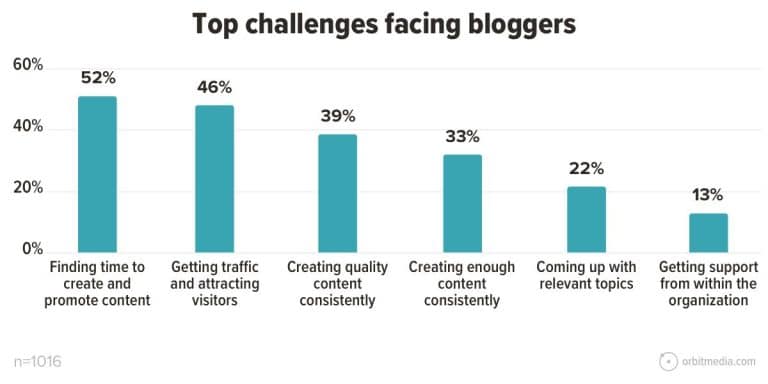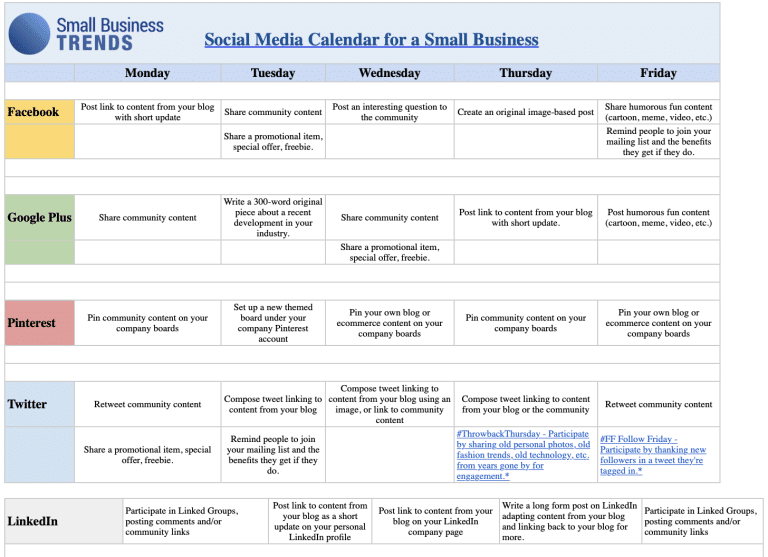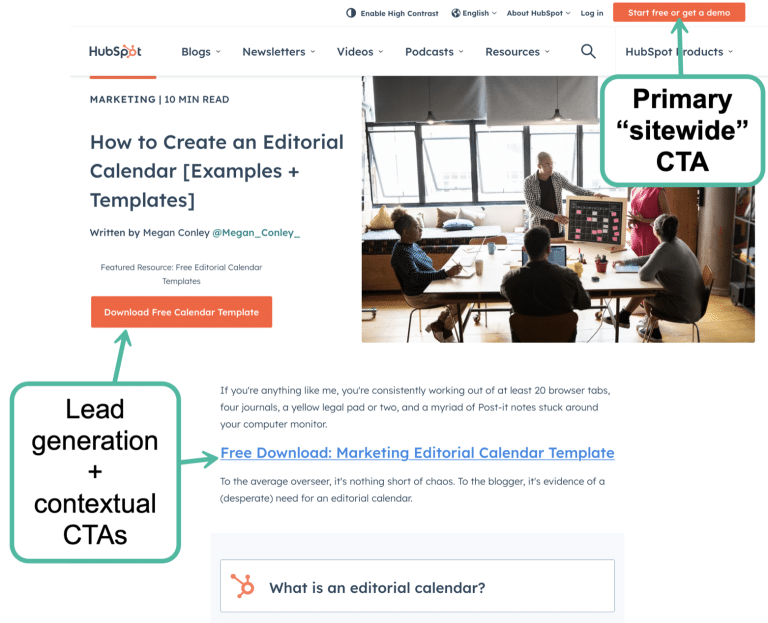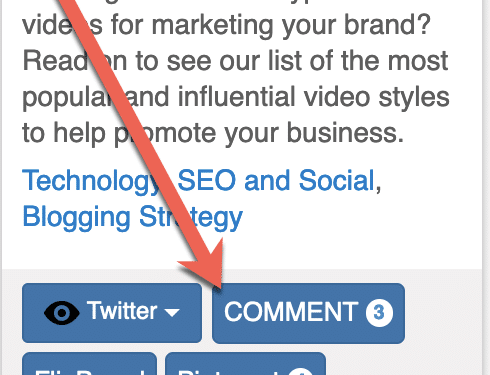Blogging is a popular marketing channel.
According to Orbit Media, nearly 80% of the surveyed businesses use blogs for marketing, while getting traffic and promoting that blog content are two biggest challenges they are facing:

The fundamental solutions to both of these problems is obvious: A good blog promotes itself.
How can it be done? You need your readers get involved into promoting your blog by sharing it, adding comments and encourage others to do so too.
Blogging used to be the most social forms of creative writing, until people stopped engaging with blogs.
It is understandable: There are so many personal feeds these days where people prefer to share their thoughts and interact with others. It is very difficult to get them to spend time engaging with your blog – they would rather spend that time on their own wall.
How to generate more interactions on your business blog?

Here are 7 steps you should be mindful of when you’re trying to develop customer engagement with your marketing content, whether it be a blog, newsletter, podcast or video series.
1. Be Consistent
The first step is the hardest, right? Especially if your content is being created in-house, where time and resources never seem to stretch far enough. But a consistent stream of new content is the best way to build a reader or viewer base.
Plan ahead (as little as 3 months, as much as 6 months) with a simple content calendar of what topics you want to concentrate on. This way you won’t find yourself struggling for ideas at the last minute and ultimately losing steam.
Additionally, it’s a lot less stressful to produce a piece of content once a month, as opposed to once a week. So enlist a small team of people who can create content for your site. This will keep the voice and perspective fresh and the reader engaged, with less burn-out.
There’s also a handy social media calendar template to keep you even more organized.

2. Speak to Your Audience
“Everyone” is not your audience. Let’s take an easy example: sneakers. Everyone wears them, but depending on the brand, their audience could include traditional athletes, style-conscious shoppers, or outdoor adventurists. And you would want to speak to each one in a different way.
In addition, you are not necessarily your audience either. Simply because something doesn’t speak to you, it doesn’t mean it won’t speak to and spark engagement with your audience.
Knowing your audience is fundamental. Who you want to reach with your blog as well as why you have a business blog are two fundamental questions to ask yourself before starting a blog.
3. Don’t Sell
Ok, so the third step may also be the hardest! You want to push information on your product and services out to your audience and that’s understandable. However, blog posts or video blogs are not the place to sell.
Instead focus on your industry as a whole and become a valuable source of information. Give your readers information or a perspective they can’t find elsewhere.
That is not to say your blog cannot have calls-to-action. While your content should be self-promotional (or no one will read it), don’t be afraid of using contextual CTAs that will drive your readers to become your customers or subscribers:

4. What’s Trending?
While creating a 3-month or 6-month content plan is a great way to stay on-track and focused, don’t be afraid to steer off track to address a trending topic in your industry or in life in general.
Writing on something that’s widely discussed is sure to capture readers’ attention and create an online conversation.
5. Invite Comments
It’s important that your site be open for user commenting. Engagement can’t happen if you’re not open to it. And don’t make it overly difficult to leave a comment. You can ask for a name, email and website, but don’t include a dozen fields to be populated. Remember, this isn’t lead generation, it’s content marketing.
Then give them something to respond to! Pose a question and ask readers for their feedback, their opinions and their experiences. In content marketing customer engagement is a two-way street, so make it a real conversation. Take some time to respond to those readers who leave comments on your site. A simple “thanks!” or “we think so too!” can go a long way.
You can also request comments using Viral Content Bee: If you enable that option when adding or editing your projects, VCB members will comment on your blog which will encourage others to join the discussion and comment too!

6. Don’t Be Afraid
Your blog posts, videos or podcasts are great places to let your brand’s personality really shine. Or to create a brand personality.
Don’t be afraid to be funny, to make fun of yourself or to try new things. At the same time, don’t go overboard. Keep your audience and their values in mind at all times.
7. Share It Socially
Content marketing and social media should go hand-in-hand. As a first step, make sure your site has social sharing buttons on each page, making it easy for readers to share your content with others.
Then take matters in your own hands, and post each blog entry, video or newsletter on your appropriate social media channels.
Set up an email newsletter for each article you write. From experience, readers coming from an email are more likely to comment and share on your blog. Craft each newsletter carefully for it to be useful, not just an invitation to click.
Clearly, there are many more tricks on getting comments but the above seven steps are fundamental. From there, you can experiment with all kinds of engagement tactics!
Image: Envato Elements
This article, “How to Make Your Blog More Engaging” was first published on Small Business Trends